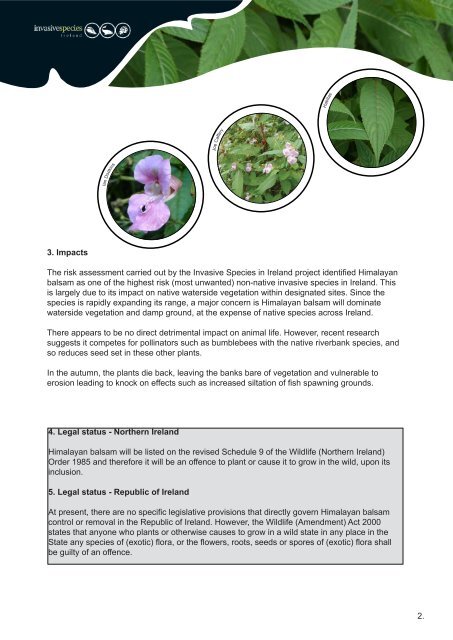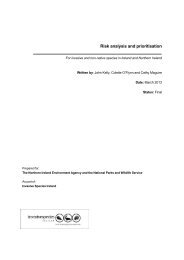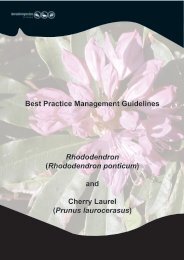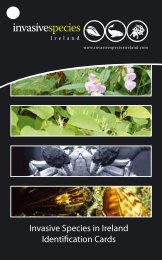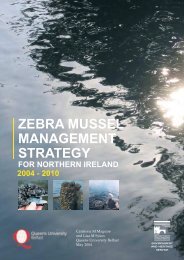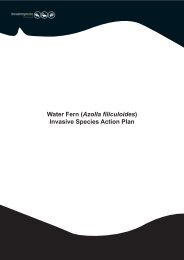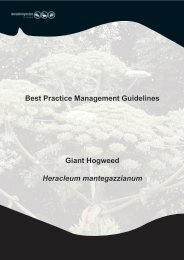Best Practice Management Guidelines Himalayan balsam - Invasive ...
Best Practice Management Guidelines Himalayan balsam - Invasive ...
Best Practice Management Guidelines Himalayan balsam - Invasive ...
You also want an ePaper? Increase the reach of your titles
YUMPU automatically turns print PDFs into web optimized ePapers that Google loves.
Habitas<br />
Joe Caffery<br />
Ian Dodkins<br />
3. Impacts<br />
The risk assessment carried out by the <strong>Invasive</strong> Species in Ireland project identified <strong>Himalayan</strong><br />
<strong>balsam</strong> as one of the highest risk (most unwanted) non-native invasive species in Ireland. This<br />
is largely due to its impact on native waterside vegetation within designated sites. Since the<br />
species is rapidly expanding its range, a major concern is <strong>Himalayan</strong> <strong>balsam</strong> will dominate<br />
waterside vegetation and damp ground, at the expense of native species across Ireland.<br />
There appears to be no direct detrimental impact on animal life. However, recent research<br />
suggests it competes for pollinators such as bumblebees with the native riverbank species, and<br />
so reduces seed set in these other plants.<br />
In the autumn, the plants die back, leaving the banks bare of vegetation and vulnerable to<br />
erosion leading to knock on effects such as increased siltation of fish spawning grounds.<br />
4. Legal status - Northern Ireland<br />
<strong>Himalayan</strong> <strong>balsam</strong> will be listed on the revised Schedule 9 of the Wildlife (Northern Ireland)<br />
Order 1985 and therefore it will be an offence to plant or cause it to grow in the wild, upon its<br />
inclusion.<br />
5. Legal status - Republic of Ireland<br />
At present, there are no specific legislative provisions that directly govern <strong>Himalayan</strong> <strong>balsam</strong><br />
control or removal in the Republic of Ireland. However, the Wildlife (Amendment) Act 2000<br />
states that anyone who plants or otherwise causes to grow in a wild state in any place in the<br />
State any species of (exotic) flora, or the flowers, roots, seeds or spores of (exotic) flora shall<br />
be guilty of an offence.<br />
2.


